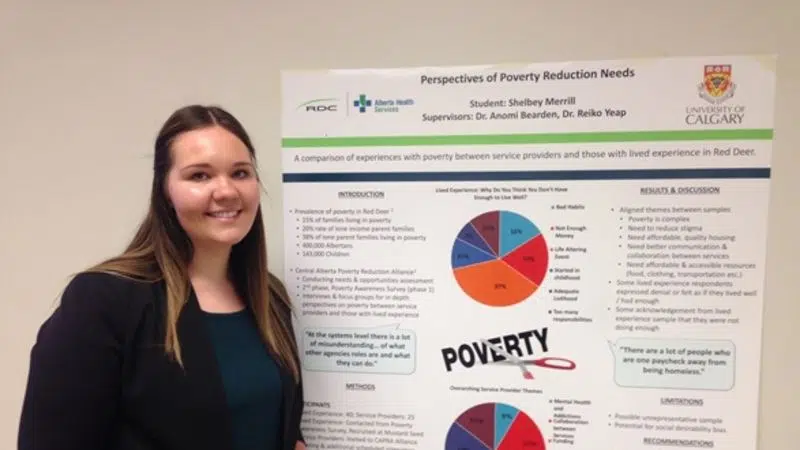
CAPRA presents Poverty Perspectives Research results to local stakeholders
The Central Alberta Poverty Reduction Alliance (CAPRA) shared with community stakeholders on Wednesday the latest results from their Poverty Perspectives Research.
The research was conducted over the past year by fourth-year University of Calgary psychology student Shelbey Merrill, in partnership with Red Deer College and Alberta Health Services.
Merrill says the research builds upon the poverty awareness survey completed in 2018, an initiative she took part in.


